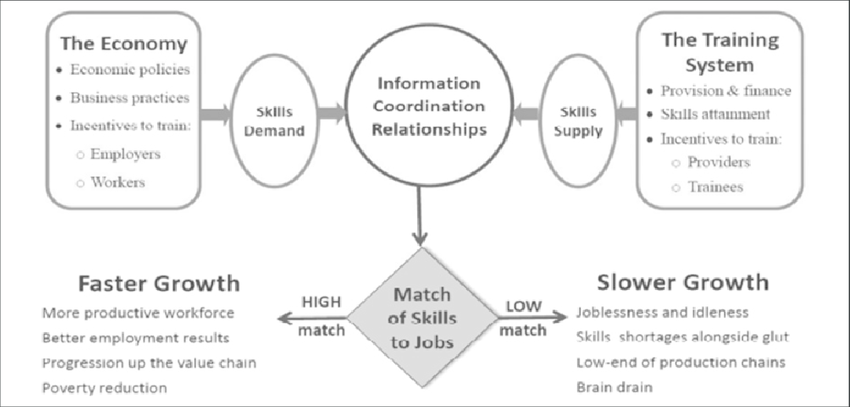Eco STEM Africa is launching a new project to address the critical shortage of educational materials in Science, Technology, Engineering, and Mathematics (STEM) fields in Nigerian secondary schools and universities. Recognizing that STEM education is crucial for fostering innovation, economic growth, and development, this project aims to provide high-quality STEM textbooks to enhance the learning experience and academic performance of students.
Project Goals
- Enhance Access to Quality STEM Education: Provide essential STEM textbooks to secondary schools and universities to improve students’ learning outcomes.
- Promote STEM Careers: Inspire and motivate students to pursue careers in STEM fields by equipping them with the necessary educational resources.
- Support Educational Institutions: Strengthen the capacity of Nigerian educational institutions to deliver effective STEM education.
- Foster Innovation and Economic Growth: Contribute to Nigeria’s economic development by nurturing a skilled workforce capable of driving technological and scientific advancements.
Impact on Recipient Schools and Universities
- Improved Academic Performance: Access to up-to-date textbooks will help students understand complex concepts, perform better in exams, and develop a solid foundation in STEM subjects.
- Increased Student Engagement: Quality educational materials can make learning more engaging and enjoyable, thereby increasing student interest in STEM fields.
- Enhanced Teaching Effectiveness: Teachers will have access to better resources to prepare their lessons and provide high-quality education.
- Economic Development: By equipping students with the skills needed for STEM careers, the project will contribute to building a workforce capable of driving innovation and economic growth in Nigeria.
- Long-term Benefits: The knowledge and skills acquired through improved STEM education will enable students to pursue higher education and careers in STEM fields, ultimately leading to advancements in technology and industry.
Eco STEM Africa is committed to transforming education in Africa by providing essential resources to students and educators. With a focus on STEM education, we aim to empower the next generation of innovators and leaders.
HOW TO APPLY
To apply, eligible schools must submit a complete application through the link below; https://forms.gle/yTJaLn5f5XAckr688
Eligibility Criteria (Secondary Schools and Universities)
To ensure the effective and equitable distribution of STEM textbooks, Eco STEAM Africa has established the following criteria for secondary schools and universities to be eligible for participation in the “Books for Brilliance: Empowering Nigeria’s Next STEM Leaders” project.
Secondary Schools Eligibility Criteria
- Accreditation and Registration:
- Must be an accredited and registered secondary school within Nigeria.
- Provide proof of accreditation from the relevant educational authorities.
- Student Enrolment:
- Must have a minimum student enrolment of 100 students.
- Provide current enrolment statistics, including the number of students in STEM courses.
- STEM Curriculum:
- Must offer a comprehensive STEM curriculum, including Mathematics, Physics, Chemistry, and Biology.
- Provide a detailed curriculum outline or syllabus for STEM subjects.
- Need Assessment:
- Demonstrate a significant need for STEM textbooks, evidenced by outdated or insufficient existing resources.
- Provide a brief report or statement detailing the current availability and condition of STEM textbooks.
- Commitment to Utilization:
- Commit to utilizing the donated textbooks effectively in the classroom.
- Provide a plan or statement on how the textbooks will be integrated into teaching and learning processes.
- Support from Administration:
- Obtain a letter of support from the school administration, endorsing the application and committing to the project’s objectives.
- Ensure administrative support for the proper maintenance and usage of the textbooks.
- Impact Potential:
- Demonstrate the potential impact of receiving the textbooks on students’ academic performance and interest in STEM fields.
- Provide examples or case studies of how additional resources have previously benefited the school, if available.
Universities Eligibility Criteria
- Accreditation and Registration:
- Must be an accredited and registered university within Nigeria.
- Provide proof of accreditation from the relevant educational authorities.
- Student Enrolment:
- Must have a significant number of students enrolled in STEM courses or programs.
- Provide current enrolment statistics, including the number of students in STEM disciplines.
- STEM Programs:
- Must offer degree programs in STEM fields, including but not limited to Mathematics, Physics, Chemistry, Biology, Computer Science, and Engineering.
- Provide a detailed curriculum or syllabus for STEM programs.
- Need Assessment:
- Demonstrate a significant need for STEM textbooks, evidenced by outdated or insufficient existing resources.
- Provide a brief report or statement detailing the current availability and condition of STEM textbooks.
- Research and Innovation:
- Highlight any ongoing research or innovation projects that would benefit from the additional resources.
- Provide details of research projects, if applicable, and how the textbooks will support these efforts.
- Commitment to Utilization:
- Commit to utilizing the donated textbooks effectively in lectures, laboratories, and research.
- Provide a plan or statement on how the textbooks will be integrated into teaching, learning, and research processes.
- Support from Administration:
- Obtain a letter of support from the university administration, endorsing the application and committing to the project’s objectives.
- Ensure administrative support for the proper maintenance and usage of the textbooks.
- Impact Potential:
- Demonstrate the potential impact of receiving the textbooks on students’ academic performance, research capabilities, and interest in STEM fields.
- Provide examples or case studies of how additional resources have previously benefited the university, if available.




